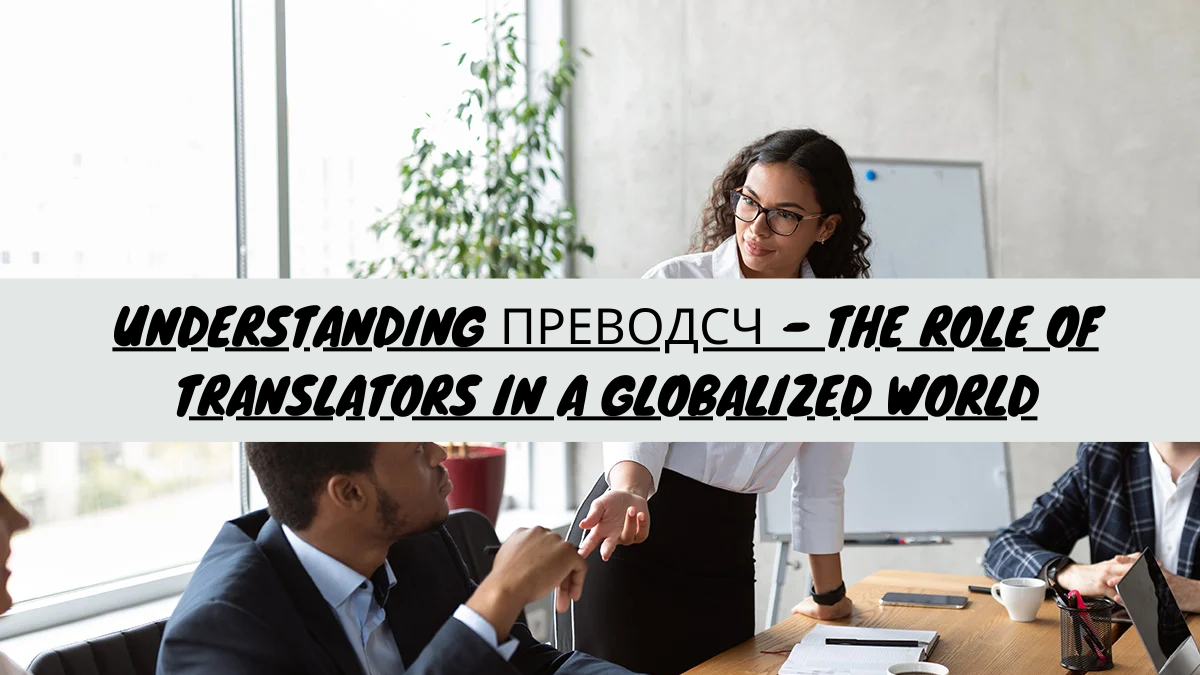Understanding преводсч – The Role of Translators in a Globalized World
Introduction to преводсч
In our interconnected world, the ability to communicate across different languages is essential for fostering global relationships and understanding. The term преводсч—a Bulgarian word meaning “translator”—represents individuals who excel in this vital role. Translators are instrumental in facilitating effective communication between speakers of different languages, enabling smooth interactions and exchanges of ideas.
The Role of преводсч in Modern Communication
преводсч are more than just language experts; they are cultural mediators who ensure that the essence of the message is preserved across languages. Their work is crucial in various sectors including:
- International Business: Facilitating negotiations, contracts, and communication between global partners.
- Diplomacy: Ensuring accurate and sensitive communication between governments and international organizations.
- Legal Fields: Translating legal documents and court proceedings to ensure justice and compliance.
- Healthcare: Helping patients and medical professionals communicate effectively, which is vital for proper diagnosis and treatment.
- Media and Entertainment: Translating books, films, and television shows to reach a global audience.
Why Translation Matters
Translation goes beyond mere word-for-word conversion; it involves conveying meaning, tone, and context. Effective translation helps:
- Foster Understanding: It bridges gaps between different cultures, allowing people to share ideas and collaborate.
- Expand Markets: Businesses can enter new markets by providing their products and services in multiple languages.
- Promote Inclusion: It ensures that people from diverse linguistic backgrounds have access to essential information and services.
Challenges Faced by преводсч
The profession of преводсч comes with its own set of challenges:
- Cultural Nuances: Translators must understand idiomatic expressions, humor, and cultural references to maintain the original message’s integrity.
- Time Constraints: Meeting tight deadlines while maintaining high quality requires excellent time management and organizational skills.
- Specialized Content: Translating technical or industry-specific material demands expertise in the relevant field to ensure accuracy.
- Client Expectations: Managing client feedback and revisions requires clear communication and negotiation skills.
- Keeping Up with Language Changes: Languages evolve, and translators must stay updated with new terminology and changes in usage.
Essential Skills for a Successful преводсч
Successful преводсч exhibit the following skills:
- Cultural Understanding: Deep knowledge of both source and target cultures to ensure accurate translations.
- Adaptability: Ability to work across different languages and subject areas.
- Attention to Detail: Precision in translating complex texts while retaining the original meaning.
- Research Skills: Proficiency in researching industry-specific terms and technical jargon.
- Effective Communication: Clear interaction with clients to ensure expectations are met and feedback is incorporated.
Tools and Techniques Used by преводсч
преводсч use a variety of tools to enhance their work:
- Computer-Assisted Translation (CAT) Tools: These tools help manage and reuse translations, ensuring consistency and efficiency.
- Terminology Management: Creating and maintaining glossaries helps with accurate and consistent translations, especially for specialized content.
- Machine Translation Tools: Tools like Google Translate provide initial translations, but human expertise is necessary to refine and ensure accuracy.
- Cultural Knowledge: Understanding cultural context helps in creating translations that are both accurate and culturally appropriate.
Common Misconceptions About Translation
Several misconceptions about translation include:
- Translation is Not Just Word-Swapping: It involves understanding and conveying context, tone, and cultural nuances.
- Human Translators are Essential: While machine tools are useful, they cannot replace the nuanced understanding of human translators.
- Not All Translations are Literal: Good translation adapts text to sound natural in the target language while preserving the original meaning.
Advancements in Translation Technology
Recent advancements in technology have transformed translation:
- Machine Learning and AI: These technologies improve translation by analyzing large datasets and understanding context.
- Neural Machine Translation (NMT): NMT enhances translation quality by better handling context and nuances.
- Cloud-Based Platforms: These platforms facilitate real-time collaboration and ensure consistency across translations.
Cultural Sensitivity in Translation
Cultural sensitivity is crucial for effective translation. It involves understanding and respecting the cultural context of the target language to ensure that the translation is both accurate and appropriate. This approach helps build trust and facilitates better communication across cultures.
Tips for Hiring a Reliable преводсч
When selecting a преводсч, consider:
- Experience and Expertise: Look for translators with relevant experience in your field.
- Quality Assurance: Request samples or testimonials to assess their work quality.
- Communication: Ensure the translator is responsive and open to feedback.
- Timeline and Budget: Discuss deadlines and pricing to avoid misunderstandings.
FAQs
What does преводсч mean?
преводсч is a Bulgarian word for “translator,” referring to someone who translates spoken or written content between languages.
Why is translation important?
Translation is vital for facilitating communication across different languages, fostering global collaboration, and ensuring access to information for people from diverse linguistic backgrounds.
What challenges do translators face?
Translators face challenges such as understanding cultural nuances, managing tight deadlines, translating specialized content, and meeting client expectations.
What skills are essential for a successful translator?
Essential skills include cultural understanding, adaptability, attention to detail, research skills, and effective communication.
What tools do translators use?
Translators use tools like Computer-Assisted Translation (CAT) tools, terminology management systems, machine translation tools, and leverage their cultural knowledge.
How has technology impacted translation?
Technology has improved translation efficiency and accuracy through advancements like machine learning, Neural Machine Translation (NMT), and cloud-based collaboration platforms.
What is cultural sensitivity in translation?
Cultural sensitivity involves understanding and respecting the cultural context of the target language to ensure that translations are accurate and appropriate.
Conclusion
The role of a преводсч is crucial in today’s globalized world, facilitating effective communication and understanding across languages and cultures. By mastering the art of translation, embracing technological advancements, and maintaining cultural sensitivity, преводсч help bridge language gaps and promote a more connected world.







